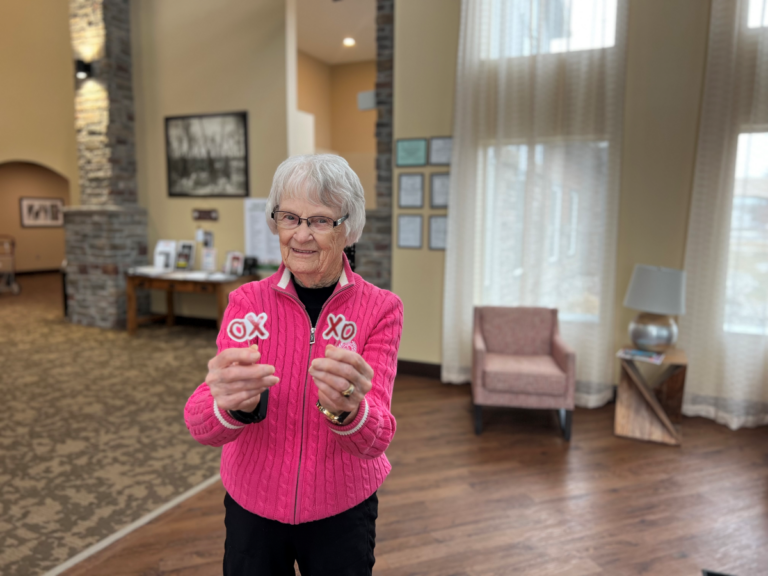
Charlatans, scammers, and crooks are all just alternative monikers for plain, old-fashioned thieves! The National Council on Aging reported that, in 2021, older Americans were scammed out of $1.7 billion!
As quickly as we can raise awareness about a swindle, it seems like another scam unfurls before us. From “hurry-and-share-this” posts to phone calls saying your grandson is jailed in Mexico and needs bail money, it seems like we need to keep our heads on a swivel these days. Let’s review some common hoaxes happening today so you can learn how to stay safe and keep that hard-earned cash in your pocket where it belongs.
Find Senior Living Near Me
Receiving a call from the IRS/SS Administration or another entity is alarming and could be fake. IRS employees will not call to demand immediate payments, ask for credit card numbers, or threaten you. If you owe the IRS something, they will send you a bill in the mail.
The Social Security Administration webpage tells us they don’t make random calls. They do send letters or call you back at your request. When in doubt, call it out! If you’re not expecting a call from Social Security and receive one, call them on their main telephone number, 1 (800) 772-1213, and verify. Check their webpage here: ssa.gov/scam/ to learn about current or ongoing scams and what to do if you become a victim.
Phone Cons:
These scammers do their very best Academy Award-winning performances to make you afraid, and they want you to act fast. Criminals behind these tricks are often asking you for money in the form of gift cards. They may claim you owe them money and request you go out quickly, purchase a gift card, and provide the details from the back. They may give you a sense of urgency and threaten jail time for inaction.
Another common telephone scam we mentioned in our introduction is when a caller tells you that your grandson or granddaughter has been jailed in another country and needs bail money. These scammers also request urgency, discouraging you from disconnecting or verifying the story.
Incoming Calls with Familiar Phone Numbers:
Scammers can spoof telephone numbers from friends and loved ones you trust. They can spoof the Social Security Administration phone number or even the local police. If you answer one of these calls and it sounds scammy, be selective about what you say. If the call comes from a loved one/friend, you can always call them back and ask if they just rang you. Remember, if the police, Social Security, or the IRS need something, they’ll find you!
Social Media Swindles:
“Share this post and win big!” The idea that someone has too many campers, pickup trucks, or pallets of cash they don’t know what to do with should be an immediate red flag. Sharing “just in case it’s real” could get your account hacked.
Perhaps you’ve received a friend request from a stone-cold fox wanting to be your pal. Accept friend requests only from people you know. Many of us have a friends list containing that one gal we chatted with back when, but be cautious about new “friends” you’ve never heard of. Be especially aware of new friends you’ve never heard of with mutual friends. Sometimes, groups overlook verifying someone’s identity because they see mutual friends.
Online Dating Scams:
Your ideal match finds you, and you’re over the moon! You begin chatting over Messenger and may develop feelings for your new friend. Once the relationship is established, they request money and gift cards and obtain your sensitive personal information. The National Council on Aging reports that these scams cost those over age 70 an average of nearly $9,500 in 2020! Beware if your new companion won’t show you their face or details are murky.
“Will you walk into my parlour? said the Spider to the Fly.” —Mary Howitt
Fake Sweepstakes and Lottery Winnings:
If you get a call stating you’ve won sweepstakes or a lottery, and they ask you for your bank account information to make the deposit, don’t fall for it. If the prize patrol shows up at your front door, go bananas! Just remember, if they’re giving YOU a check, they don’t need your banking information or any account numbers.
Overpayment Scams:
If you have a payment app, like Zelle, Venmo, or PayPal, proceed with caution when making transactions. If you have an overpayment or payment-due message from someone you don’t know, delete it. If your friend or family member sends you a notice that you overpaid them and they’re requesting a refund, call them and discuss it to ensure their account wasn’t hacked. If you pay a stranger or pay the wrong account in error through one of these applications, it’s unlikely that you’ll receive those funds back.
Email Cons:
Don’t open emails unless they’re from someone or an organization you know. Review the email address and subject line carefully. Look for spelling errors or fonts that seem out of the ordinary. Remember, nothing is free. Opening emails and attachments can allow tricksters to access your device and accounts. Toss them into spam or delete them.
Medicare and Medicaid Freebies:
These lovely TV ads can be a real headache and can result in folks paying the total price out of pocket for power wheelchairs and walk-in tubs. If you need one of these items and want Medicare or Medicaid to cover the costs, your first call should be to your doctor’s office. Please don’t call the TV ad, receive the item, and expect the costs to be covered despite how joyful they are on-screen.
Helpful Solutions:
We hope sharing this information can help save your hard-earned money. Please feel free to share with your friends. If you’re in the market for senior living, Edgewood Healthcare can help! Short-term to long-term, we can help make retirement years happy! Reach out to us at info@edgewoodhealthcare.com.




